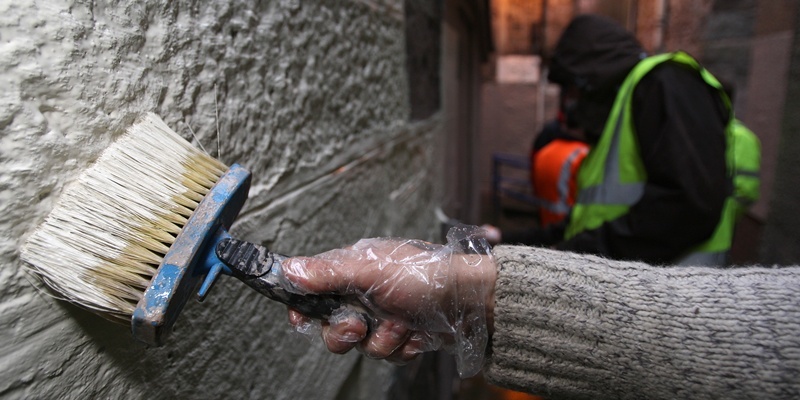Convicted criminals could be used to perform grounds maintenance work being ditched by Perth and Kinross Council in a bid to cut costs.
The authority has unveiled plans to make £166,000 in savings with a raft of measures including treating capacity graveyards just once a year, scaling back ”goodwill” work and leaving swathes of open ground untreated.
It is also considering the increased use of offenders on community payback orders (CPO) to carry out tasks such as litter picking and weeding. CPOs were introduced this year as an alternative to community service orders.
The council agreed to the savings in its February budget and a reduction of the workforce by eight full-time posts has helped meet it.
A 10-step scheme to claw back the rest of the cash is being discussed by councillors on the environment committee today.
A report by depute director (environment) Jim Valentine suggests work could be taken on by petty criminals.
He said: ”The criminal justice service have responded favourably to this proposal (but) have pointed out that community payback activities are determined through consultation with local communities.
”If the communities identify these tasks as important to them, officers within both services will progress this initiative further.
”The criminal justice service will shortly be carrying out a consultation exercise, to seek community views of their priorities for community payback activities.”
Among the other proposals, 23 burial grounds which are full will only be visited once a year by council workers, while strimming will not take place around gravestones.
In line with neighbouring councils such as Stirling and Angus, large areas of open greenspace will remain uncut, mainly in the Perth area.
Mr Valentine claims the least used areas, such as flood defence banks, would be affected. Some could be converted to woodland.
Around 400 sites have been identified where the council undertakes maintenance work without actually owning the land.
Mr Valentine states: ”For a number of sites, these appear to have been maintained on a ‘goodwill basis.’ It is not considered that the council can afford to maintain this level of goodwill in the present economic climate.
”This includes some housing association land, village halls, and private housing areas where the council does not have records for adopting the sites.”
Landowners will be consulted on whether they will get the work done themselves, or stop it altogether.
Similarly, grass verges at the ”gateways” to small communities could go untreated unless locals make a contribution and community groups will also be asked to help keep countryside paths and rights of way weed-free.
”Time consuming” strimming work will be scaled back despite the report acknowledging ”the risk to the visual impact ” will be the creation of an unkempt neighbourhood and paths which will, over a period of time, narrow as grass gradually encroaches.”
Almost 100 council-owned sites ”with low amenity value” could receive just one visit per year by staff.
Environment convener Councillor Alan Grant said: ”We have to make some difficult decisions regarding the services we provide to ensure we can keep delivering as effectively as possible to our communities.
”Many of the proposals here will not happen instantly and will be the subject of detailed discussions with land owners and community groups in the first instance.
”Perth and Kinross has a strong reputation for the quality of its environment. I hope that this can continue, potentially with even greater community involvement, in the future.”
